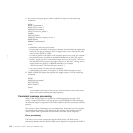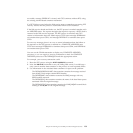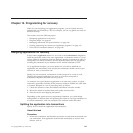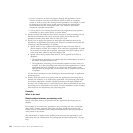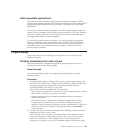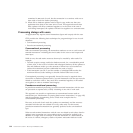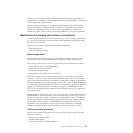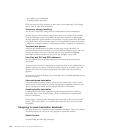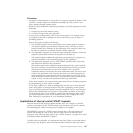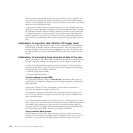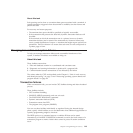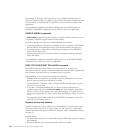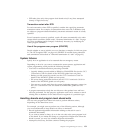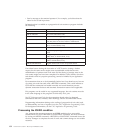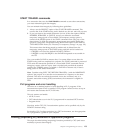v Data tables (user-maintained)
v Coupling facility data tables
CICS can return all these resources to their status at the beginning of an in-flight
unit of work if a task ends abnormally.
Temporary storage (auxiliary)
You can use a temporary storage item to communicate between transactions.
(For this purpose, the temporary storage item needs to be unique to the terminal
ID. If the terminal becomes unavailable, the transaction sequence is interrupted
until the terminal is again available.) The temporary storage queue-name (DATAID
or QUEUE name) can be read and reread, but the application program must delete
it when it is no longer needed to communicate between a sequence of transactions.
Transient data queues
Transient data (intrapartition) is similar to temporary storage (auxiliary) for
communicating between transactions, the main difference being that you can each
record in the queue only once. Transient data must be specified as logically
recoverable to achieve backout to the start of any in-flight unit of work.
User files and DL/I and DB2 databases
You can dedicate files or database segments to communicating data between
transactions.
Transactions can record the completion of certain functions on the dedicated file or
database segment. A progress transaction (whose purpose is to tell the user what
updates have and have not been performed) can examine the dedicated file or
segment.
In the event of physical damage, user VSAM files, DL/I, and DB2 databases can be
forward recovered.
User-maintained data tables
User-maintained data tables (UMTs), which are recoverable after a unit of work
failure can be a useful means of passing data between transactions. However, they
are not forward recoverable, and not recoverable after a CICS restart.
Coupling facility data tables
Coupling facility data tables updated using the locking model, and which are
recoverable after a unit of work failure, can be a useful means of passing data
between transactions.
Unlike UMTs, coupling facility data tables are recoverable in the event of a CICS
failure, CFDT server failure , or an MVS failure. However, they are not forward
recoverable.
Designing to avoid transaction deadlocks
You must design your program to avoid transaction deadlocks. There are a number
of techniques that you can use in your program to avoid this situation.
About this task
Consider using the following techniques:
146 CICS TS for z/OS 4.1: Recovery and Restart Guide



